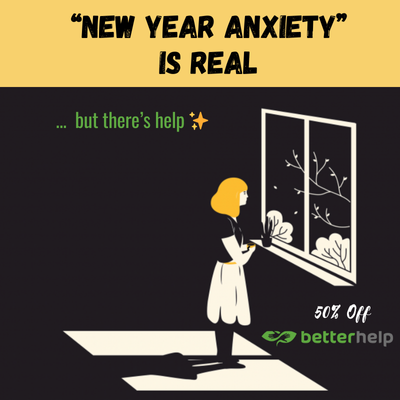We are told time and again that practicing yoga is not confined to practicing asanas on a mat or in a class with a teacher.
But what does it mean to practice yoga “off the mat”? In the soft calm of a relaxation session, I can find myself intoning things like,”See things through the perspective of yoga.”
Two things spring to mind: firstly, the advice I give is always advice to myself. It’s also advice to the class, but I’m really talking to what we have in common, being human.
Secondly, I’m painfully aware that seeing things through the perspective of yoga sounds both obscure and potentially conflicting if you have other spiritual or religious beliefs. Most people already have some principles they use to guide their dealings with themselves, or society or their non-human relationships (from how they treat the pet dog to how they use water or react to the weather).
Adding another layer of principles, some of which might contradict the existing set, can only cause confusion, or add to the burdensome pile-up of layers of duty, or even guilt. So let’s let all that go.
For me, taking yoga off the mat, seeing from the perspective of yoga, requires no adherence to ideals or principles.
Quite the opposite. I mean, of course there are lots of yogis who understand this differently and I respect their focus. My own, here in a rural district of Ireland, also requires me to respect the Catholic beliefs of the vast majority of my students.
Over the years I’ve had the feedback in dentist’s waiting rooms, in community offices: yoga goes against the teachings of the Church, I’m sometimes told (actually, it’s usually someone else who is told and they tell me. That’s just how these things work). When I respond that there’s no contradiction, then, it’s possibly because I don’t have a traditionalist’s view.
In my understanding, yoga is simply the practice of awareness, taking into account just what is happening right now, without judgement, without suppressing anything.
Source: Kristen Colei via Theresa L via PinterestIf your other beliefs ask you to listen for a guiding voice, or to follow commandments, then by all means, do. But let your practice of yoga open you to the dancing dynamics of each unfolding moment: how the light changes; how your relationships are shifting; how your emotions emerge in patterns; how each breath rhymes but never repeats itself.
It’s oddly paradoxical, but even just the very act of noticing shifts relationships off their rigid trajectories and opens up the possibilities for a different response.
I began life in a Christian household and it’s the religion of my culture, so embedded in my language that it’s difficult to get the idea of “spirit” across without the accompanying images of “ghosts,” particularly holy ones.
But what if “spirit” just meant “attitude”? As in, “that’s the spirit!” meaning, “that’s the way to do it!”
What yoga practice means to me is just this: get into the habit, the spirit, of realizing what is going on. It’s a physical thing – you realize what position you’re in, literally—but it’s also a psychological and even an environmental thing for me (and, I’d hazard a guess, for others).
You realize what state of mind you’re in (the phrase is wrong because it’s not a state. State implies stasis and we’re talking about realizing, as things connect and separate in dancing disarray, while you, being a point of view that is also bound up in those interminglings and partings, both watch and participate in the interchange).
You realize what sort of relationships you have with things around you, even as you have a chat or discuss, bicker, argue, fight, sulk, ignore.
Yoga is the practice of seeing all the interactions while they’re happening, so that not only are you part of the action, but you realize you’re part of the action. Even as you use water, eat food, drink wine, travel to work, wash, walk, you realize you’re bringing a particular relationship into being and seeing it dissolve, or change.
Understanding yoga as a practice of awakening doesn’t imply that you have to wait years for the experience: as soon as you realize that you’re in this set of shifting relationships, you’ve got it.
As soon as you’ve stopped to remark to yourself, “I’ve got it!” you’ve lost the perspective. So it both takes practice, and is instant realization.
I’ve judged myself for years. More than half my life has been spent with the daily knowledge that I will obsessively seek to binge and purge. Each self-judgement created more suffering, more anxiety and anguish, and that, in turn, dictated the conditions for another round.
Photo: Lisa CyrThroughout those years, I practiced some yoga. I mean, I practiced asanas, some pranayama, and some relaxation techniques.
And somehow, I found myself practicing moving beyond the heartbreaking rigidity of focus, that I was opening into a dynamic awareness that released me from prejudgments, that I was taking into account just what was there—my swollen, dysmorphic body, my razor blade self-critique—and seeing it all as a swirling mix of cast accusations and expectations. I awoke to the quiet, flexible perception that moved quickly through the immediate and back to the distant, like seeing the struggle on the battlefield and panning back to see the sunset beyond.
This realization that I could pan back was the only freedom I had. Yet it was infinite relief from the constraints of considering what to wear to hide my shame, or how to conceal my next meal.
Being able to reflect on the conditions that brought me to just this particular moment, here, now, to these choices, allowed me to acknowledge that I wasn’t making choices in any meaningful sense.
It was only when I practiced seeing myself in context, compassionately, without condemning the rigid pattern of habitual reactions that trapped me, that I could open to the possibility of an alternative response.
My life is not perfect now—I still have plenty of patterns that I can see cause suffering, and yet I repeat them.
But this practice of reflecting, seeing myself in context, loosens the knots that bind me to a particular, repetitive, rigid pattern of reactions. I realize that being me doesn’t rely on trotting around these pre-set hoops.
In practicing yoga, I generate compassion for myself and for the whole complement of relationships that my activity has trapped into this particular web of existence. That generation of compassion is the only real choice I can make.
Yoga is that practice of compassionate realization for the shifting space we’re in. The realization acts like a switch, opening the options beyond those that have made deep grooves in our nervous system, into the possibilities for healing, and acceptance and even the motivation to work to reduce suffering everywhere—to allow all our relationships to flow so the rigid patterns everywhere are released into a flow that rhymes beautifully but need never repeat.
But hey, don’t listen to me…I’m just as enmeshed as the next person.
Find out for yourself!
Lucy Weir: I’m a PhD candidate writing a thesis about evolutionary science, Zen and the ecological crisis. It’s informed by having worked with forced migrants and by having had serious self-respect issues. In a way, the thesis is my attempt to realize self respect which, for me, is a direct mirror of respect for all relationships, including the relationship with the natural, non-human world.
Like elephant Yoga on Facebook.
Assistant Editor: Terri Tremblett/Ed: Bryonie Wise










Read 0 comments and reply